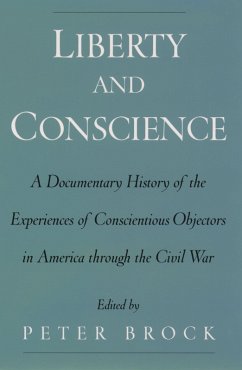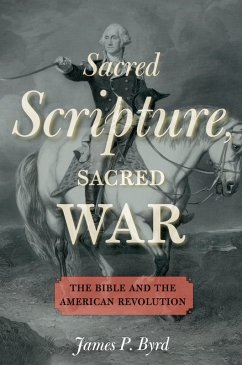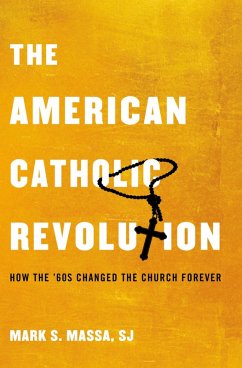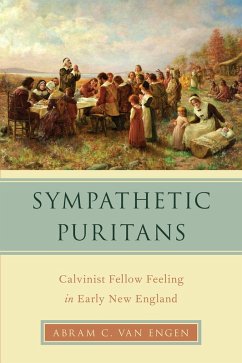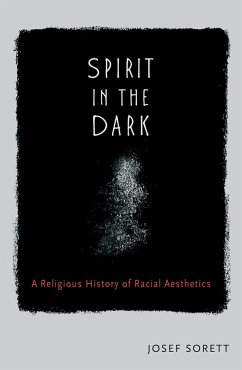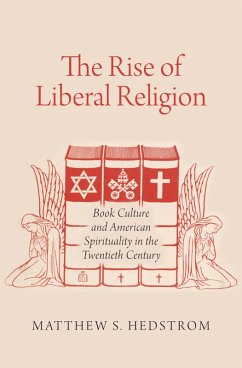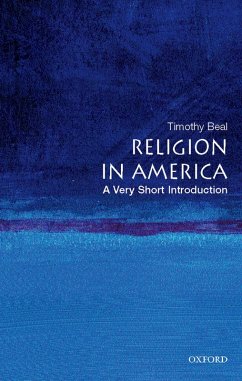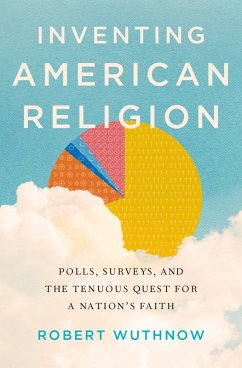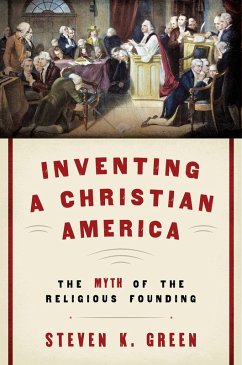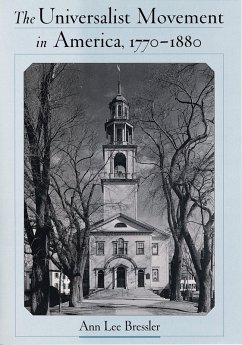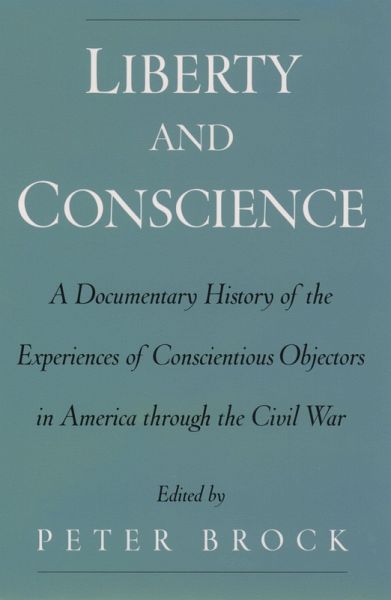
Liberty and Conscience (eBook, PDF)
A Documentary History of the Experiences of Conscientious Objectors in America through the Civil War
Redaktion: Brock, Peter
Versandkostenfrei!
Sofort per Download lieferbar
40,95 €
inkl. MwSt.
Weitere Ausgaben:

PAYBACK Punkte
20 °P sammeln!
Although the act of conscientious objection entered modern consciousness most strikingly as a result of the Vietnam War, Americans have long struggled to reconcile their politics, pacifist beliefs, and compulsory military service. While conscientious objection in the twentieth century has been well documented, there has been surprisingly little study of its long history in America's early conflicts, defined as these have been by accounts of patriotism and nation-building. In fact, during the period of conscription from the late 1650s to the end of the Civil War, many North Americans refused mi...
Although the act of conscientious objection entered modern consciousness most strikingly as a result of the Vietnam War, Americans have long struggled to reconcile their politics, pacifist beliefs, and compulsory military service. While conscientious objection in the twentieth century has been well documented, there has been surprisingly little study of its long history in America's early conflicts, defined as these have been by accounts of patriotism and nation-building. In fact, during the period of conscription from the late 1650s to the end of the Civil War, many North Americans refused military service on grounds of conscience. In this volume, Peter Brock, one of the foremost historians of American pacifism, seeks to remedy this oversight by presenting a rich and varied collection of documents, many drawn from obscure sources, that shed new light on American religious and military history. These include legal findings, church and meeting proceedings, appeals by nonconformists to government authorities, and illuminating excerpts from personal journals. These accounts contain many poignant, often painful, and sometimes even humorous episodes that offer glimpses into the lives of conscientious objectors of the era. One of the most striking features to emerge from these documents is the critical role of religion in the history of American pacifism. Brock finds that virtually all who refused military service in this period were inspired by religious convictions, with Quakers frequently the most ardent dissenters. In the antebellum period, however, the pacifist spectrum expanded to include nonsectarians such as the famous abolitionist William Lloyd Garrison, founder of the New England Non-Resistance Society. A dramatic, powerful portrait of early American pacifism, Liberty and Conscience presents not only the thought and practice of the objectors themselves, but also the response of the authorities and the general public.
Dieser Download kann aus rechtlichen Gründen nur mit Rechnungsadresse in A, B, BG, CY, CZ, D, DK, EW, E, FIN, F, GR, HR, H, IRL, I, LT, L, LR, M, NL, PL, P, R, S, SLO, SK ausgeliefert werden.




